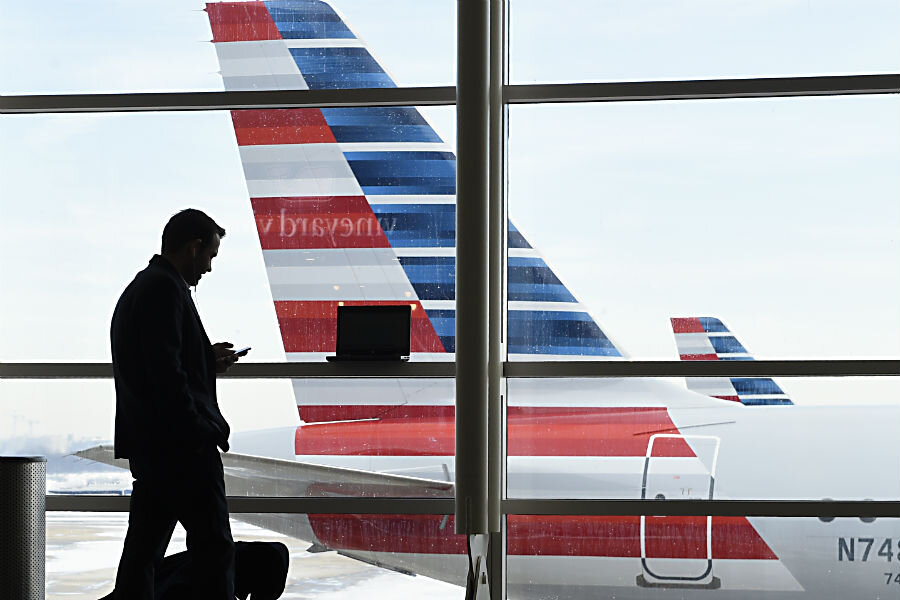Why free cookies and pretzels are returning to airline flights
Loading...
| New York
After 15 years of near austerity, U.S. airlines are restoring some small perks for passengers crammed into coach.
Don't expect ample legroom or free checked bags. But fliers will find improved snacks, a larger selection of free movies and — on a few select routes — the return of free meals.
Monday, American Airlines became the latest carrier to add something back. It announced the return of free snacks in the economy section and more free entertainment options on some aircraft.
American, which recently merged with US Airways, hasn't offered free snacks since 2003. US Airways stripped passengers of snacks in 2008.
Following the Sept. 11, 2001 terrorist attacks and the subsequent recession, airlines removed almost ever perk imaginable. Hot meals disappeared along with legroom, blankets and pillows.
"It was really about survival," says Fernand Fernandez, vice president of global marketing at American.
When Continental Airlines stopped giving out free cookies and mini bags of pretzels in 2011 — after its merger with United Airlines — it said the move would save $2.5 million a year.
Since then, mergers have created four mega-carriers that control more than 80 percent of the domestic market. They started charging $25 for each checked suitcase. And more seats have been crammed into planes to maximize profits. Now the industry is making record profits.
"What has changed ," Fernandez says, "is that the airlines have been able to fix our core business and be able to reinvest in our customers."
That means new planes, larger overhead bins and for a long time, nicer first class cabins.
Now a bit of that wealth is trickling back to coach.
In February, American will start offering Biscoff cookies or pretzels to passengers flying between New York and San Francisco or Los Angeles. By April, those snacks will expand to all other domestic routes. In May, American will bring back full meal service for coach passengers between Dallas and Hawaii.
"We know that we have customers who select our airline based on price and we're really excited to offer them a product that is superior to choosing an ultra-low cost carrier," Fernandez says.
United recently announced the return of free snacks on its flights starting in February. Delta Air Lines — the other big legacy carrier — never removed snacks, even during bankruptcy.
American is also expanding its complimentary entertainment on domestic flights with in-seat TVs. Passengers will be able to choose from up to 40 movies, 60 TV shows and 300 music albums. Delta has taken a different path, focusing more on entertainment that passengers can stream to their own devices. It now offers about 67 movies and 138 TV shows for free.
"These are token investments in the passenger experience that will not cost airlines a lot of money but are small ways to make passengers a little bit happier," says Henry Harteveldt, the founder of travel consultancy Atmosphere Research Group. "American and United realized: We don't let other airlines have an advantage on price, why let them have one on pretzels."
The return of fatter profit margins may mean a few more perks, but don't expect prices to drop across the board, The Christian Science Monitor reports.
Airlines collectively are expected to report $33 billion in net profits in 2015, up from $17.4 billion in 2014, nearly a 90 percent increase. As the USA Today points out, these represent the highest profits by far since at least 1990.
While airlines are saving billions on fuel, given that oil prices have declined by more than half since 2014, and more people are flying, presumably because they are saving money at the gas pump, flying will likely not get any cheaper, say airline analysts.
Nor will the airlines lower the myriad fees, such as baggage and reservation-change fees, that were introduced over the last decade to make up for their lost revenues."If someone is looking at these profits and thinking 'Does that mean bag fees will go away?' The answer is not only no, but very much no," Henry Harteveldt, travel industry analyst for San Francisco-based Atmosphere Research Group, told the Los Angeles Times.







